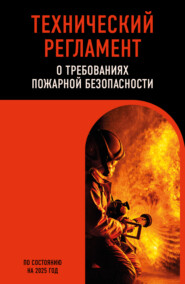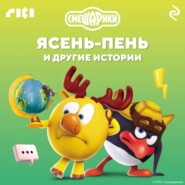По всем вопросам обращайтесь на: info@litportal.ru
(©) 2003-2025.
✖
Stories by English Authors: Africa (Selected by Scribners)
Настройки чтения
Размер шрифта
Высота строк
Поля
Well, sir, we kindled a fire, and had supper with the Sasassa demon’s eye rolling and glowing in front of us the whole night through. Not always in the same place, though; for after supper, when I glanced along the sights to have another look at it, it was nowhere to be seen. The information did not, however, seem to disturb Tom in any way. He merely remarked, “It’s the moon, not the thing, that has shifted;” and coiling himself up, went to sleep.
By early dawn we were both up, and gazing along our pointer at the cliff; but we could make out nothing save the one dead, monotonous, slaty surface, rougher perhaps at the part we were examining than elsewhere, but otherwise presenting nothing remarkable.
“Now for your idea, Jack!” said Tom Donahue, unwinding a long thin cord from round his waist. “You fasten it, and guide me while I take the other end.” So saying, he walked off to the base of the cliff, holding one end of the cord, while I drew the other taut, and wound it round the middle of the horizontal stick, passing it through the sight at the end. By this means I could direct Tom to the right or left, until we had our string stretching from the point of attachment, through the sight, and on to the rock, which it struck about eight feet from the ground. Tom drew a chalk circle of about three feet diameter round the spot, and then called to me to come and join him. “We’ve managed this business together, Jack,” he said, “and we’ll find what we are to find, together.” The circle he had drawn embraced a part of the rock smoother than the rest, save that about the centre there were a few rough protuberances or knobs. One of these Tom pointed to with a cry of delight. It was a roughish, brownish mass about the size of a man’s closed fist, and looking like a bit of dirty glass let into the wall of the cliff. “That’s it!” he cried – “that’s it!”
“That’s what?”
“Why, man, a diamond, and such a one as there isn’t a monarch in Europe but would envy Tom Donahue the possession of. Up with your crowbar, and we’ll soon exorcise the demon of Sasassa Valley!”
I was so astounded that for a moment I stood speechless with surprise, gazing at the treasure which had so unexpectedly fallen into our hands.
“Here, hand me the crowbar,” said Tom. “Now, by using this little round knob which projects from the cliff here as a fulcrum, we may be able to lever it off. Yes; there it goes. I never thought it could have come so easily. Now, Jack, the sooner we get back to our hut and then down to Cape Town, the better.”
We wrapped up our treasure, and made our way across the hills toward home. On the way, Tom told me how, while a law student in the Middle Temple, he had come upon a dusty pamphlet in the library, by one Jans van Hounym, which told of an experience very similar to ours, which had befallen that worthy Dutchman in the latter part of the seventeenth century, and which resulted in the discovery of a luminous diamond. This tale it was which had come into Tom’s head as he listened to honest Dick Wharton’s ghost-story, while the means which he had adopted to verify his supposition sprang from his own fertile Irish brain.
“We’ll take it down to Cape Town,” continued Tom, “and if we can’t dispose of it with advantage there, it will be worth our while to ship for London with it. Let us go along to Madison’s first, though; he knows something of these things, and can perhaps give us some idea of what we may consider a fair price for our treasure.”
We turned off from the track accordingly, before reaching our hut, and kept along the narrow path leading to Madison’s farm. He was at lunch when we entered; and in a minute we were seated at each side of him, enjoying South African hospitality.
“Well,” he said, after the servants were gone, “what’s in the wind now? I see you have something to say to me. What is it?”
Tom produced his packet, and solemnly untied the handkerchiefs which enveloped it. “There!” he said, putting his crystal on the table; “what would you say was a fair price for that?”
Madison took it up and examined it critically. “Well,” he said, laying it down again, “in its crude state about twelve shillings per ton.”
“Twelve shillings!” cried Tom, starting to his feet. “Don’t you see what it is?”
“Rock-salt!”
“Rock-salt be d – d! a diamond.”
“Taste it!” said Madison.
Tom put it to his lips, dashed it down with a dreadful exclamation, and rushed out of the room.
I felt sad and disappointed enough myself; but presently, remembering what Tom had said about the pistol, I, too left the house, and made for the hut, leaving Madison open-mouthed with astonishment. When I got in, I found Tom lying in his bunk with his face to the wall, too dispirited apparently to answer my consolations. Anathematising Dick and Madison, the Sasassa demon, and everything else, I strolled out of the hut, and refreshed myself with a pipe after our wearisome adventure. I was about fifty yards from the hut, when I heard issuing from it the sound which of all others I least expected to hear. Had it been a groan or an oath, I should have taken it as a matter of course; but the sound which caused me to stop and take the pipe out of my mouth was a hearty roar of laughter! Next moment Tom himself emerged from the door, his whole face radiant with delight. “Game for another ten-mile walk, old fellow?”
“What! for another lump of rock-salt, at twelve shillings a ton?”
“‘No more of that, Hal, an you love me,’ “ grinned Tom. “Now look here, Jack. What blessed fools we are to be so floored by a trifle! Just sit on this stump for five minutes, and I’ll make it as clear as daylight. You’ve seen many a lump of rock-salt stuck in a crag, and so have I, though we did make such a mull of this one. Now, Jack, did any of the pieces you have ever seen shine in the darkness brighter than any fire-fly?”
“Well, I can’t say they ever did.”
“I’d venture to prophesy that if we waited until night, which we won’t do, we would see that light still glimmering among the rocks. Therefore, Jack, when we took away this worthless salt, we took the wrong crystal. It is no very strange thing in these hills that a piece of rock-salt should be lying within a foot of a diamond. It caught our eyes, and we were excited, and so we made fools of ourselves, and left the real stone behind. Depend upon it, Jack, the Sasassa gem is lying within that magic circle of chalk upon the face of yonder cliff. Come, old fellow, light your pipe and stow your revolver, and we’ll be off before that fellow Madison has time to put two and two together.”
I don’t know that I was very sanguine this time. I had begun, in fact, to look upon the diamond as a most unmitigated nuisance. However, rather than throw a damper on Tom’s expectations, I announced myself eager to start. What a walk it was! Tom was always a good mountaineer, but his excitement seemed to lend him wings that day, while I scrambled along after him as best I could.
When we got within half a mile he broke into the “double,” and never pulled up until he reached the round white circle upon the cliff. Poor old Tom! when I came up, his mood had changed, and he was standing with his hands in his pockets, gazing vacantly before him with a rueful countenance.
“Look!” he said, “look!” and he pointed at the cliff. Not a sign of anything in the least resembling a diamond there. The circle included nothing but a flat slate-coloured stone, with one large hole, where we had extracted the rock-salt, and one or two smaller depressions. No sign of the gem.
“I’ve been over every inch of it,” said poor Tom. “It’s not there. Some one has been here and noticed the chalk, and taken it. Come home, Jack; I feel sick and tired. Oh, had any man ever luck like mine!”
I turned to go, but took one last look at the cliff first. Tom was already ten paces off.
“Hollo!” I cried, “don’t you see any change in that circle since yesterday?”
“What d’ ye mean?” said Tom.
“Don’t you miss a thing that was there before?”
“The rock-salt?” said Tom.
“No; but the little round knob that we used for a fulcrum. I suppose we must have wrenched it off in using the lever. Let’s have a look at what it’s made of.”
Accordingly, at the foot of the cliff we searched about among the loose stones.
“Here you are, Jack! We’ve done it at last! We’re made men!”
I turned round, and there was Tom radiant with delight, and with the little corner of black rock in his hand. At first sight it seemed to be merely a chip from the cliff; but near the base there was projecting from it an object which Tom was now exultingly pointing out. It looked at first something like a glass eye; but there was a depth and brilliancy about it such as glass never exhibited. There was no mistake this time; we had certainly got possession of a jewel of great value; and with light hearts we turned from the valley, bearing away with us the “fiend” which had so long reigned there.
There, sir; I’ve spun my story out too long, and tired you perhaps. You see, when I get talking of those rough old days, I kind of see the little cabin again, and the brook beside it, and the bush around, and seem to hear Tom’s honest voice once more. There’s little for me to say now. We prospered on the gem. Tom Donahue, as you know, has set up here, and is well known about town. I have done well, farming and ostrich-raising in Africa. We set old Dick Wharton up in business, and he is one of our nearest neighbours. If you should ever be coming up our way, sir, you’ll not forget to ask for Jack Turnbull – Jack Turnbull of Sasassa Farm.
LONG ODDS, By H. Rider Haggard
The story which is narrated in the following pages came to me from the lips of my old friend Allan Quatermain, or Hunter Quatermain, as we used to call him in South Africa. He told it to me one evening when I was stopping with him at the place he bought in Yorkshire. Shortly after that, the death of his only son so unsettled him that he immediately left England, accompanied by two companions, his old fellow-voyagers, Sir Henry Curtis and Captain Good, and has now utterly vanished into the dark heart of Africa. He is persuaded that a white people, of which he has heard rumours all his life, exists somewhere on the highlands in the vast, still unexplored interior, and his great ambition is to find them before he dies. This is the wild quest upon which he and his companions have departed, and from which I shrewdly suspect they never will return. One letter only have I received from the old gentleman, dated from a mission station high up the Tana, a river on the east coast, about three hundred miles north of Zanzibar; in it he says that they have gone through many hardships and adventures, but are alive and well, and have found traces which go far toward making him hope that the results of their wild quest may be a “magnificent and unexampled discovery.” I greatly fear, however, that all he has discovered is death; for this letter came a long while ago, and nobody has heard a single word of the party since. They have totally vanished.
It was on the last evening of my stay at his house that he told the ensuing story to me and Captain Good, who was dining with him. He had eaten his dinner and drunk two or three glasses of old port, just to help Good and myself to the end of the second bottle. It was an unusual thing for him to do, for he was a most abstemious man, having conceived, as he used to say, a great horror of drink from observing its effects upon the class of colonists – hunters, transport-riders and others – amongst whom he had passed so many years of his life. Consequently the good wine took more effect on him than it would have done on most men, sending a little flush into his wrinkled cheeks, and making him talk more freely than usual.
Dear old man! I can see him now, as he went limping up and down the vestibule, with his gray hair sticking up in scrubbing-brush fashion, his shrivelled yellow face, and his large dark eyes, that were as keen as any hawk’s, and yet soft as a buck’s. The whole room was hung with trophies of his numerous hunting expeditions, and he had some story about every one of them, if only he could be got to tell it. Generally he would not, for he was not very fond of narrating his own adventures, but to-night the port wine made him more communicative.
“Ah, you brute!” he said, stopping beneath an unusually large skull of a lion, which was fixed just over the mantelpiece, beneath a long row of guns, its jaws distended to their utmost width. “Ah, you brute! you have given me a lot of trouble for the last dozen years, and will, I suppose to my dying day.”
“Tell us the yarn, Quatermain,” said Good. “You have often promised to tell me, and you never have.”
“You had better not ask me to,” he answered, “for it is a longish one.”
“All right,” I said, “the evening is young, and there is some more port.”
Thus adjured, he filled his pipe from a jar of coarse-cut Boer tobacco that was always standing on the mantelpiece, and still walking up and down the room, began:
“It was, I think, in the March of ‘69 that I was up in Sikukuni’s country. It was just after old Sequati’s time, and Sikukuni had got into power – I forget how. Anyway, I was there. I had heard that the Bapedi people had brought down an enormous quantity of ivory from the interior, and so I started with a waggon-load of goods, and came straight away from Middelburg to try and trade some of it. It was a risky thing to go into the country so early, on account of the fever; but I knew that there were one or two others after that lot of ivory, so I determined to have a try for it, and take my chance of fever. I had become so tough from continual knocking about that I did not set it down at much. Well, I got on all right for a while. It is a wonderfully beautiful piece of bush veldt, with great ranges of mountains running through it, and round granite koppies starting up here and there, looking out like sentinels over the rolling waste of bush. But it is very hot, – hot as a stew-pan, – and when I was there that March, which, of course, is autumn in this part of Africa, the whole place reeked of fever. Every morning, as I trekked along down by the Oliphant River, I used to creep from the waggon at dawn and look out. But there was no river to be seen – only a long line of billows of what looked like the finest cotton-wool tossed up lightly with a pitchfork. It was the fever mist. Out from among the scrub, too, came little spirals of vapour, as though there were hundreds of tiny fires alight in it – reek rising from thousands of tons of rotting vegetation. It was a beautiful place, but the beauty was the beauty of death; and all those lines and blots of vapour wrote one great word across the surface of the country, and that word was ‘fever.’
“It was a dreadful year of illness that. I came, I remember, to one little kraal of knobnoses, and went up to it to see if I could get some maas (curdled butter-milk) and a few mealies. As I got near I was struck with the silence of the place. No children began to chatter, and no dogs barked. Nor could I see any native sheep or cattle. The place, though it had evidently been recently inhabited, was as still as the bush round it, and some guinea-fowl got up out of the prickly pear bushes right at the kraal gate. I remember that I hesitated a little before going in, there was such an air of desolation about the spot. Nature never looks desolate when man has not yet laid his hand upon her breast; she is only lovely. But when man has been, and has passed away, then she looks desolate.
“Well, I passed into the kraal, and went up to the principal hut. In front of the hut was something with an old sheepskin kaross (rug) thrown over it. I stooped down and drew off the rug, and then shrank back amazed, for under it was the body of a young woman recently dead. For a moment I thought of turning back, but my curiosity overcame me; so going past the dead woman, I went down on my hands and knees and crept into the hut. It was so dark that I could not see anything, though I could smell a great deal, so I lit a match. It was a ‘tandstickor’ match, and burnt slowly and dimly, and as the light gradually increased I made out what I took to be a family of people, men, women, and children, fast asleep. Presently it burnt up brightly, and I saw that they too, five of them altogether, were quite dead. One was a baby. I dropped the match in a hurry, and was making my way out of the hut as hard as I could go, when I caught sight of two bright eyes staring out of a corner. Thinking it was a wild cat, or some such animal, I redoubled my haste, when suddenly a voice near the eyes began first to mutter, and then to send up a succession of awful yells. Hastily I lit another match, and perceived that the eyes belonged to an old woman, wrapped up in a greasy leather garment. Taking her by the arm, I dragged her out, for she could not, or would not, come by herself, and the stench was overpowering me. Such a sight as she was – a bag of bones, covered over with black, shrivelled parchment. The only white thing about her was her wool, and she seemed to be pretty well dead except for her eyes and her voice. She thought that I was a devil come to take her, and that is why she yelled so. Well, I got her down to the waggon, and gave her a ‘tot’ of Cape smoke, and then, as soon as it was ready, poured about a pint of beef-tea down her throat, made from the flesh of a blue vilder-beeste I had killed the day before, and after that she brightened up wonderfully. She could talk Zulu, – indeed, it turned out that she had run away from Zululand in T’Chaka’s time, – and she told me that all the people whom I had seen had died of fever. When they had died the other inhabitants of the kraal had taken the cattle and gone away, leaving the poor old woman, who was helpless from age and infirmity, to perish of starvation or disease, as the case might be. She had been sitting there for three days among the bodies when I found her. I took her on to the next kraal, and gave the headman a blanket to look after her, promising him another if I found her well when I came back. I remember that he was much astonished at my parting with two blankets for the sake of such a worthless old creature. ‘Why did I not leave her in the bush?’ he asked. Those people carry the doctrine of the survival of the fittest to its extreme, you see.
“It was the night after I had got rid of the old woman that I made my first acquaintance with my friend yonder,” and he nodded toward the skull that seemed to be grinning down at us in the shadow of the wide mantel-shelf. “I had trekked from dawn till eleven o’clock, – a long trek, – but I wanted to get on; and then had turned the oxen out to graze, sending the voorlooper to look after them, meaning to inspan again about six o’clock, and trek with the moon till ten. Then I got into the waggon and had a good sleep till half-past two or so in the afternoon, when I rose and cooked some meat, and had my dinner, washing it down with a pannikin of black coffee; for it was difficult to get preserved milk in those days. Just as I had finished, and the driver, a man called Tom, was washing up the things, in comes the young scoundrel of a voorlooper driving one ox before him.

















